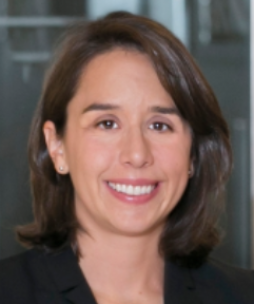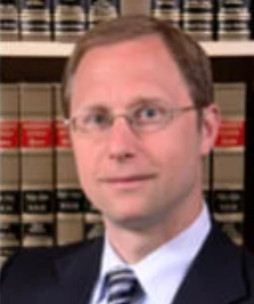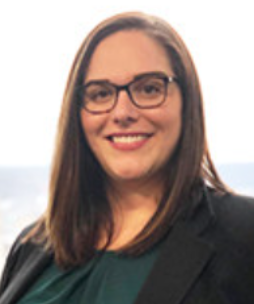| MCLE | New England® | view in browser |
 |
|
| PROGRAM ALERT |
| Drafting Successful Medicaid Trusts |
| Expert advice on withstanding MassHealth scrutiny |
Creating an effective Medicaid trust requires not only a deep understanding of trust law, but also of estate and tax planning. You must know how to draft trust terms that will get approved—not always easy when it seems unclear what the state will—and will not—allow. Using the right language and key terms is vital—and more challenging than ever. This program provides analysis of recent and current Medicaid trust cases both at the fair hearing stage and Superior Court cases through the SJC. The faculty include a complete review of the SJC’s decision in Fournier v. Sudders. Explore the current arguments the state is making, which includes attacks on the limited power of appointment to charities or children, the argument that nominee realty trusts are revocable, the power to loan money to the donor, the power to buy life insurance, and several others. Review the Hirvi Settlement, the new 130 CMR § 610.00 regulations, and the MassHealth Eligibility Operations Memo 20-04. Learn about the grantor powers that are safest to use and which ones are being challenged by the state. Hear a discussion of the income tax benefits of making the trust a grantor trust and the importance of keeping the § 121 capital gains exclusion. Learn what paragraphs should and should not be in these irrevocable trusts, as well as how to draft around current challenges and make arguments to distinguish your trust from the Cohen, Doherty, and most recent Braiterman cases that MassHealth uses to attack Medicaid trusts. Explore the step-up basis rules and the estate and gift tax rules related to drafting these trusts along with the tax implications of using life estates. Learn how to draft a QTIP share and remainder share into these trusts to obtain estate tax reduction and nursing home protection at the same time. Finally, learn how naming the estate the beneficiary of your IRA coupled with a testamentary trust can offer significant estate tax savings and nursing home protection without a negative income tax hit on the required minimum distributions. |
| Agenda |
|
| Faculty |
 |
LISA M. NEELEY is a partner in Rubin and Rudman LLP in Boston. She is a member of the firm’s trusts and estates department and elder law practice group. She focuses her practice on elder law with an emphasis on Medicaid applications and appeals, estate and special needs planning, probate administration, and guardianship and conservatorship proceedings. She is a fellow of the American College of Trust and Estate Counsel and a member of the Massachusetts chapter of the National Academy of Elder Law Attorneys and the Massachusetts and Worcester County Bar Associations. Ms. Neeley is a graduate of the New England School of Law and Assumption College. | |
 |
KAREN B. JOHNSON, JD, LL.M. is a cofounder of the law office of Madge & Johnson, PC, a law firm concentrating on estate planning and elder law, located in Westford, Massachusetts. Karen is a graduate of Duke University School of Law and holds an advanced degree (LLM) in taxation from Boston University School of Law. She has been a practicing attorney since 1994. As an elder law and estate planning attorney, Ms. Johnson offers her clients a wide array of planning services, from planning for incapacity and simple wills to helping multigeneration millionaire families utilize their estate tax credits efficiently. She advises clients on how best to transfer and protect their assets. | |
 |
TODD E. LUTSKY joined Cushing and Dolan, P.C. in 1995 initially concentrating in the preparation of estate plans, including the use of revocable trusts, joint trusts, irrevocable life insurance trusts, qualified personal residence trusts, and family limited partnerships. He has since expanded his practice to include business planning through the use of Massachusetts limited liability companies, Delaware series limited liability companies, sales of assets to an intentionally defective grantor trust, cross purchase agreements, stock redemption agreements, deferred compensation agreements, and spousal lifetime access trusts. | |
 |
ANGELINA PARGOFF STAFFORD is a Shareholder at Doherty, Wallace, Pillsbury, & Murphy PC in Springfield. She concentrates her practice on a broad range of trust and estate matters, including estate and trust administration, estate and gift tax planning, and general estate planning. Angelina also counsels clients on business succession and ownership transition of closely held companies. She is co-chair of the Hampden County Probate Bench Bar Committee and a member of the Massachusetts chapter of the National Association of Elder Law Attorneys. Angelina is a graduate of the University of Michigan and Western New England University School of Law. | |
| Materials |
|
|
| Dates Earn up to 3 CLE credits. |
 LIVE WEBCAST » LIVE WEBCAST » Tuesday, December 12, 2023 2:00 pm–5:00 pm |
 RECORDED WEBCAST » RECORDED WEBCAST » Thursday, December 28, 2023 10:00 am–1:00 pm |
 RECORDED WEBCAST » RECORDED WEBCAST » Friday, January 5, 2024 9:00 am–12:00 pm |
| Tuition (includes written materials) |
| $245 |
| $220.50 MCLE Sponsor Members |
| $122.50 New Lawyers admitted to law practice within 5 years, Pending Admittees, Law Students, and Paralegals |
| FREE for MCLE OnlinePass® Subscribers |
| To apply for a need-based scholarship, email scholarships@mcle.org |
Can’t Attend? |
| Purchase the mp3 or on demand webcast, available after Friday, January 5, 2024 at www.mcle.org. |
 | |
|
| Get everything MCLE has online for one low price— Subscribe to the MCLE OnlinePass® |
|
| Access everything MCLE has online—including all live and on demand webcasts, our entire collection of books, checklists, and forms, and more. All for one low price. Start your free trial today! | ||
| ||
| Annual subscription (monthly payment plan available) Firms $895 plus $125 per lawyer Solo practitioners $895 (admitted to law practice more than 5 years) New lawyer solo practitioners $447.50 (admitted to law practice within 5 years) Plus…MCLE Members save 10%! |
||
| ||
|
Sample a FREE Webcast & Podcast each week
|
||

| ||

|
| MCLE | New England® is a registered trademark of Massachusetts Continuing Legal Education, Inc., 10 Winter Place, Boston, MA 02108. |
| Contact us at customerservice@mcle.org or visit our website at www.mcle.org. |
| To be removed from all MCLE email lists, please click here. |
| To view this email in your web browser, click here. |
|
|
